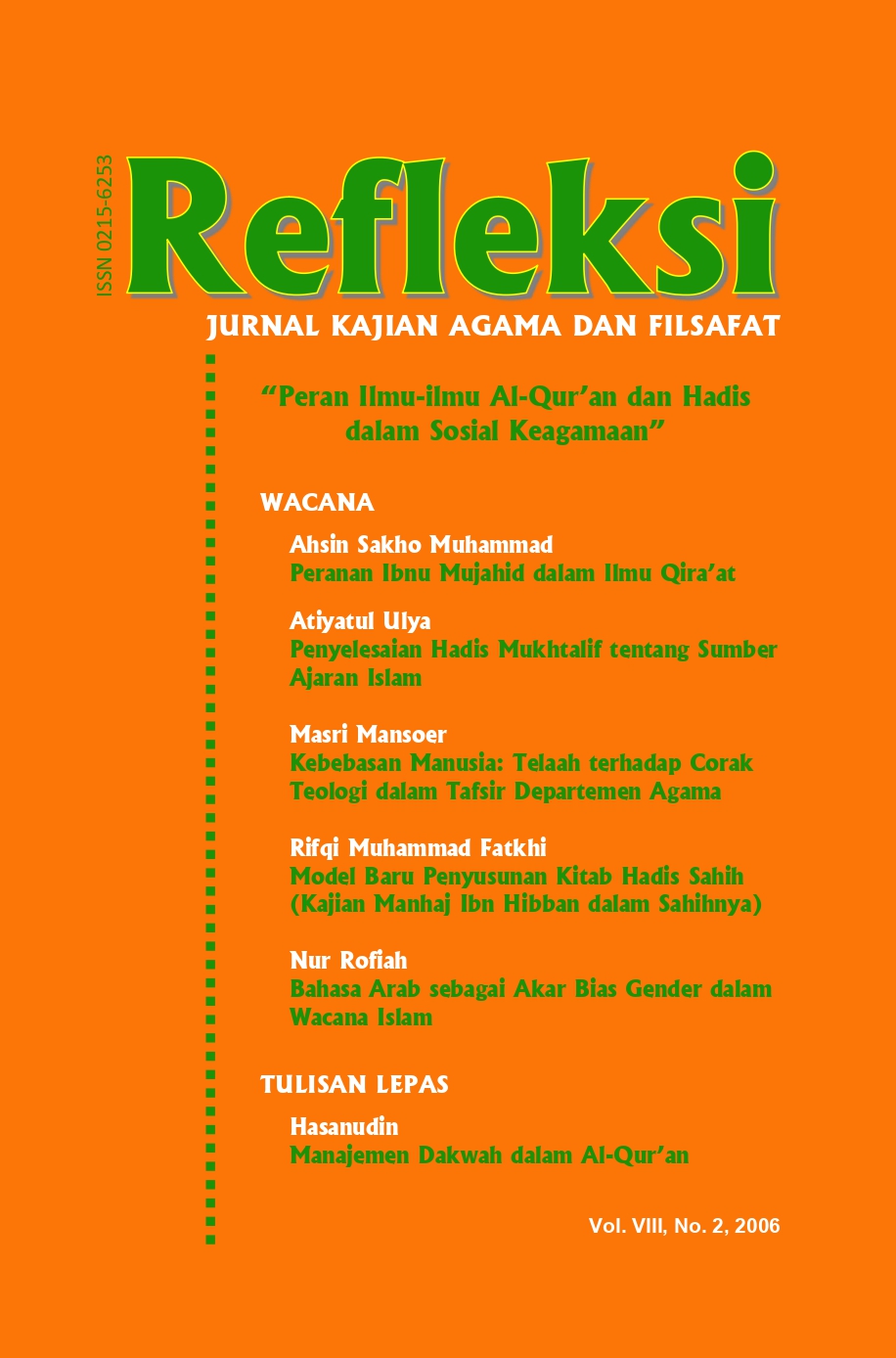Bahasa Arab sebagai Akar Bias Gender dalam Wacana Islam
DOI:
https://doi.org/10.15408/ref.v8i2.37681Keywords:
Arabic Language, Qur'anic Language, Gender, Islam.Abstract
The influence of the Arabic language on non-Arab Muslim communities also implies an influence on the way Muslims worldwide think and behave. This can be seen in the tendency of Muslim communities to associate everything Islamic (in accordance with Islam) with Arab culture. Being a comprehensive Muslim (kaffah) is often expressed by adopting Arab attributes such as wearing traditional clothing, turbans, beards, robes, veils, having Arabic names, listening to desert music, and so on. The Arabic language, which has become the language of the Muslim community, carries gender biases that affect the textualization process of Allah’s words in the form of the Qur’an. This bias is reflected in Arabic grammar, where every noun (isim) in Arabic is assigned a gender (mudzakkar or mu’annats), both literally and metaphorically. Therefore, in-depth studies on the language of the Qur’an from a gender perspective are necessary.
References
‘Abdūh, Muḥammad. Al-Manār, Kairo: Dār al-Manār, 1367.
Baugh, Albert C. dan Cable, Thomas. A History of The English Language, Englewood Cliffs: Prentice Hall Inc., 1978.
Bloomfield, Leonard. Language, London: George Allen and Unwin Ltd., 1970.
Al-Faruqi, Ismail R. dan Al-Faruqi, Lois Lamya. Atlas Budaya Islam, terj. Ilyas Hasan, Bandung: Mizan, 2003.
el-Fadl, Khaled M. Abou. Atas Nama Tuhan: dari Fikih Otoriter ke Fikih Otoritatif, terj. R. Cecep Lukman Hakim, Jakarta: Serambi, 2004.
Forum Kajian Kitab Kuning (FK3), Wajah Baru Relasi Suami-Istri, Yogyakarta: LKIS, 2001.
Haldun, Ibnu. Muqaddimah, Beirut: Dār al-Fikir, tt.
Iyas, Muḥammad bin. Badaiz Zuhur fī Waqāid Duhur, Beirut: Maktabah Saqafiyyah, tt.
Mas’udi, Masdar Farid. Agama Keadilan, Jakarta: P3M, 1993.
Muhammad, Husein. Figh Perempuan, Yogyakarta: LKiS, 2001.
Al-Quzwainī, Al-Idlah fī Wum il-Balāghah, Beirut: Dār al-Jail, 1993.
Al-Thabarī, Jāmi’ al-Bayān, Kairo: 1057-19690.
Trigg, Roger. Understanding Social Science, Oxford: Basic Blackwell, 1985.
Zaid, Nasr Hamid Abu. Women in the Discourse of Crisis, The Legal Research and Resource center for Human Right pages. (LRRC). Cairo, Egypt.








